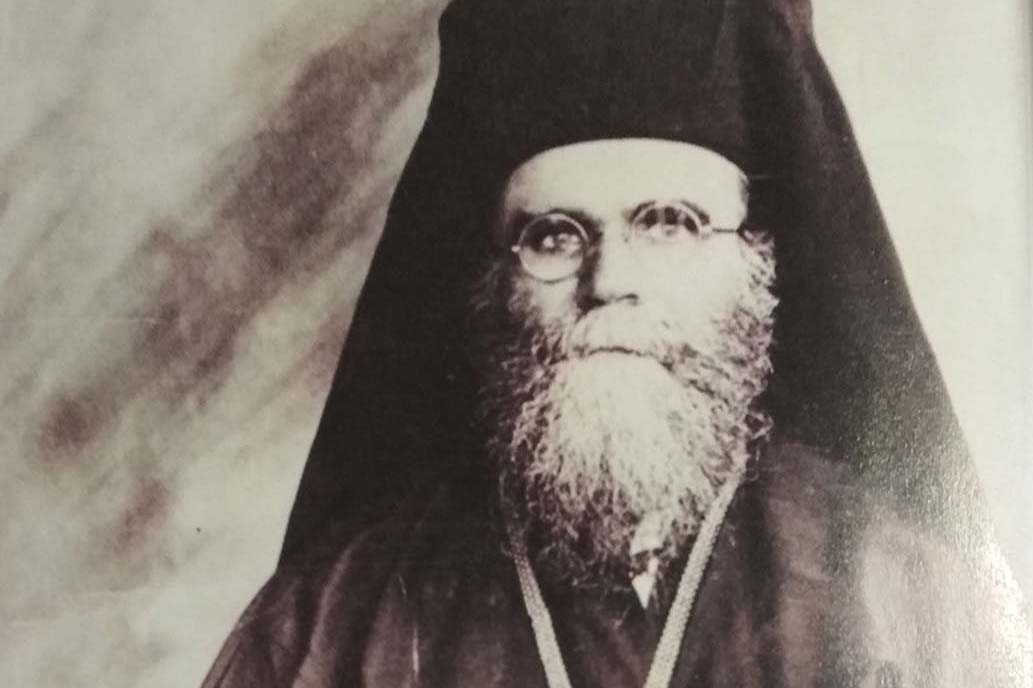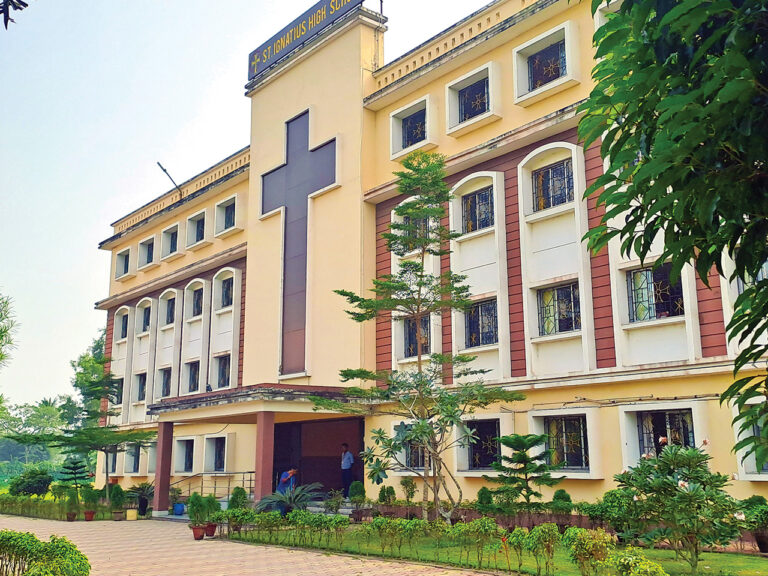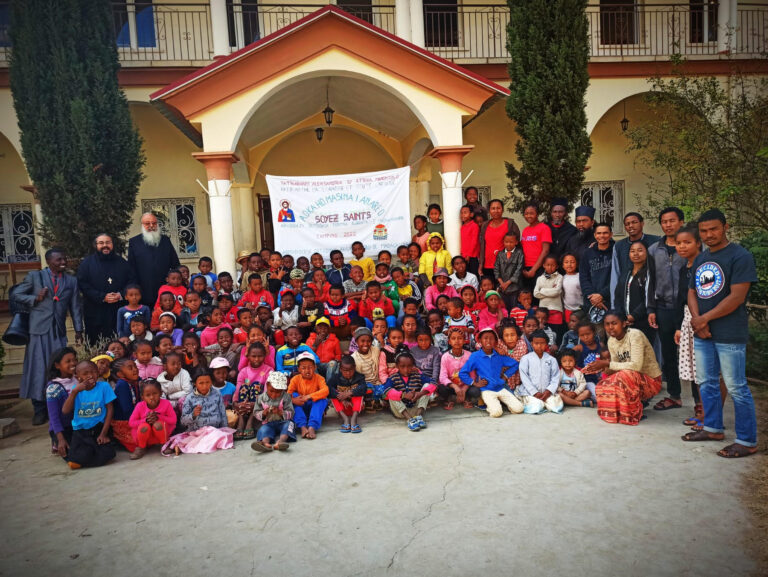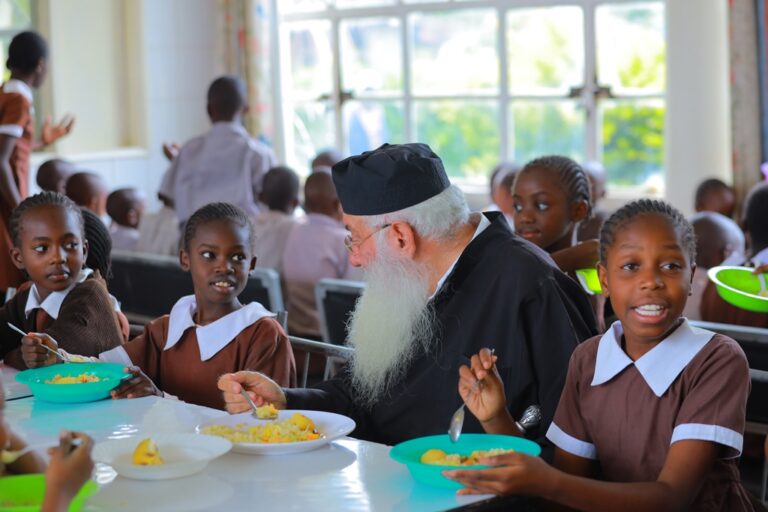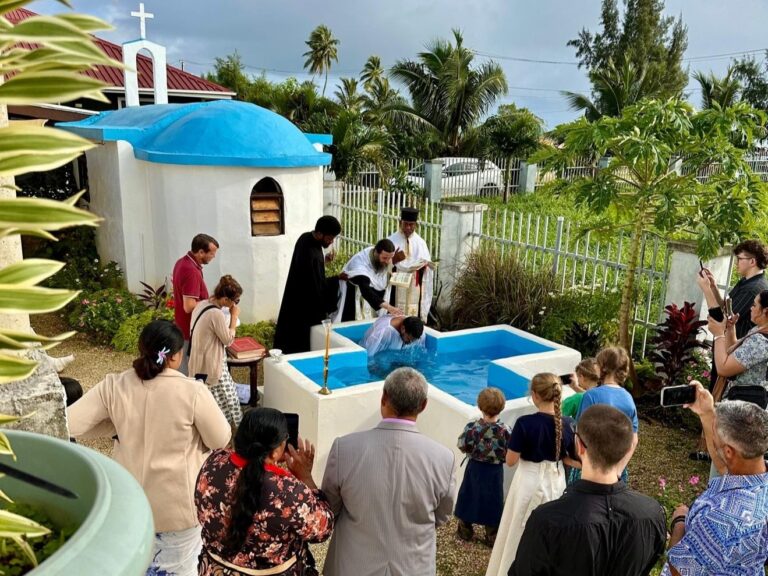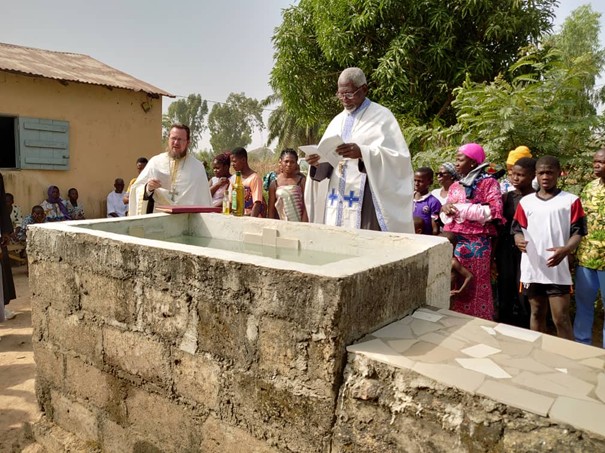The Pioneers of Africa
By Charalampos Metallidi, board president
Venerable Fathers and brothers of the Mission,
Tonight at our gathering we are honoring the 60th anniversary of the founding of this historic fraternity and its offering to the command of the Lord, ”Go ye therefore, and teach all nations”. In a historical reference, our thoughts take us back to the years of Alexander the Great, the great Military Commander, “Eskender”, as the Arabs call him.
Alexander was the greatest cultural, social and scientific bearer of values, who transferred and transmitted science, arts, letters, and above all, rich language to the then known world.
In his writings, Greek historian Constantine Paparrigopoulos says that Christianity identifies its fate with Hellenism, and used its language as a means of transmitting values. “Hellenism would perhaps have faced the risk of annihilation, if Alexander the Great and his Macedonian successors had not created the New Hellenism of the East, which is the greatest gift ever offered by a Nation to mankind. The cultural centers, such as the libraries of Alexandria, Pergamon, Antioch and Ephesus, formed the spiritual link with the ancient Greek culture.”
These centers of culture supplied the world with books and teachers that influenced the Roman, the Byzantine, and the modern Western civilization. In the glory of the spiritual and cultural prestige of Byzantium, we had the creation of a breeding ground for the transmission of the Gospel to all the peoples who interacted with it.
The French historian Sim writes then:
“ and in areas where our missionaries enter, many have first received the Gospel from Greek Priests.”
All this until the persecution and annihilation of Christians by the Ottoman Empire, which dissolved every element of culture, social as well as religious.
“Certain Peoples like the Ottoman, writes a Historian, do not produce culture, but destroy and plunder whatever beautiful they find in front of them.”
Since then, in the difficult and dark years until 1907, there is no mention of any initiative taken by Greek Missionaries, except for an unsung hero and explorer, Panagiotis Potagoupos, whose missionary travels lasted 16 years.
Ιn 1869, he went down to the Congo through Sudan to the banks of the Uele River, and from there to the Congo River. He reached these regions much earlier than explorer Stanley and much further than the point explored by Steinfurth. On his descent through the virgin forests of the Congo, he reached the cities of Isiro and Bunia, where a few years ago lived up to 5,000 Greeks… accompanied by a hundred spear-carrying guards who called him the “Greek God” because he cured their diseases. The State of the Congo honored him in the capital city Kinshasa by naming its main street Panagiotis Potagou Avenue.
In 1874, another unknown missionary, Philotheos Athinaitis, who was revealed by the pen of Nikolaos Ambazis, professor at the Varvakeio High School and former preacher of Smyrna. It shows the graduate of the Theological School of Halki on a journey to Australia falling into the hands of cannibals in the Tsague Islands close to Indonesia and their conversion by him to Christianity after much effort and plenty of risks.
Many years later, in 1907, we meet the first Missionary of East Africa, Father Nikodimos Sarikas, the “ Saint of Kilimanjaro”, as the natives called him. He crossed Rhodesia and Mozambigue and ended up in the Greek parishes of Johannesburg, building churches and schools and organizing the Greek community.
In 1911 he leaves South Africa and settles in Moshi, Tanzania. Reference is made later regarding the reason why Fr. Nikodimos left the Greek parish… He left because he made the decision to preach the Word of God to the natives, too…it is clear that his missionary zeal made him want to become financially independent from the parish, allocating all his savings to the cultivation of tobacco for some hectares granted to him by the Rhodesian government
There in Moshi, he also receives the first letter from the pioneers of Orthodoxy in Uganda, Father Obadiah BASAGIAKINDALO and Father Christopher Rubim Sparta, later bishop of Irinoupolis. Endless journeys under very difficult conditions, sufferings, dangers and sacrifices accompany the Elder until his dormition in 1941 in Tanga, Tanzania, which he called after each pastoral journey “beloved Capernaum by the sea.”
Somewhere here, after the passage of twenty years, begins the historical course of the Fraternity which identified its fate with a giant sower of the Gospel Word, the Holy missionary Chrysostomos Papasarantopoulos, who stirred the cloudy and stagnant waters of the Mission, when at the age of 57 he decided to go down to Africa. His responses to the reactions of his friends are characteristic. When they called him “old man, go back… you won’t last, you will die.”
We are moved by his many reports and letters calling for help in the great missionary work in Africa… “Come on, my child, I’m waiting for you, don’t be late. I have everything ready and I am waiting for you.” In another letter he says, “I ‘m looking forward to the young man who’s coming. I only hope he won’t be long. Just don’t be late, lad. Make the sign of the Cross and start, my child! The heavy but glorious work of the Mission awaits you “…
In such a letter he wrote to his friends in Thessaloniki, “Help me. The people here are thirsty for Orthodoxy and for Christ, and at the same time, they are starving. Response to this call was given by his friends, who formed the first missionary society “Friends of Uganda”.
The first meeting was held on December 15, 1963 with the historic words of the late first president Pantelis Bayas,
“Dear friends, at the beginning of the first meeting, I consider it my duty to say the following, which I regard as necessary, namely that the work done for God is not tiring; it does not fill the human soul with satiation, as St. J. Chrysostom said, for “piety is insatiable”.
Since then, 60 years of ministry and sacrifice in this work have passed. The Orthodox Missionary Fraternity, with the wishes and blessings of the Holy Missionary Fr. Chrysostomos, became the “vehicle”, the humble donkey of every good Samaritan which tirelessly transports every poor and injured fellow human being to the nearest inn, always leaving a little wine and a little oil in the hands of those who follow the commandment of the Lord, “Go and make disciples of all nations”
I close with a poem by Kostis Palamas, whom I like so much!
Christ looks for hearts burning for Him, not candles And no one worships Him with big crosses and deep kneeling For he who gives his life for his neighbor worships Christ He who secretly clothes the naked and has mercy on the poor He who condemns injustice and keeps his soul clean And treasures God in goodness and virtue.

